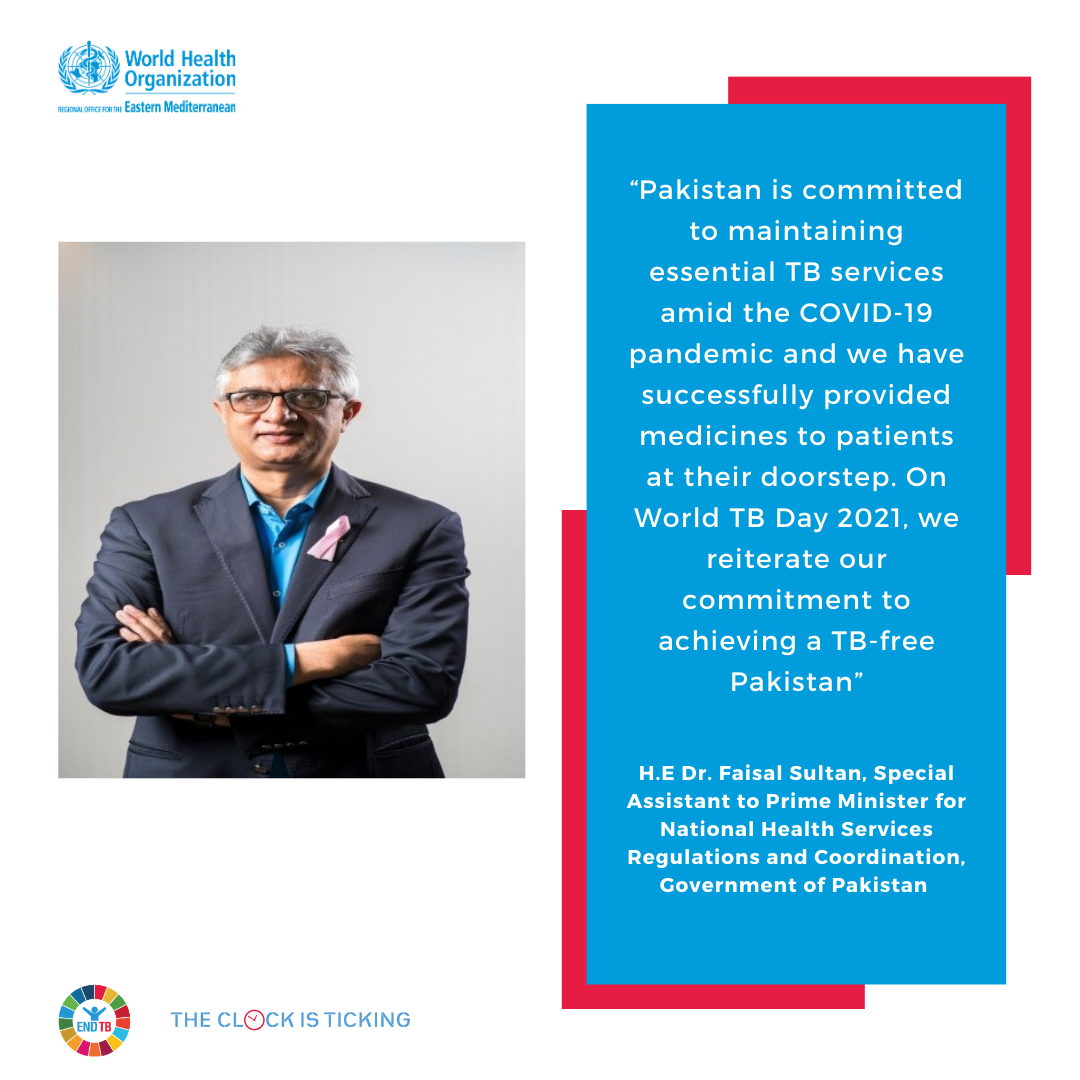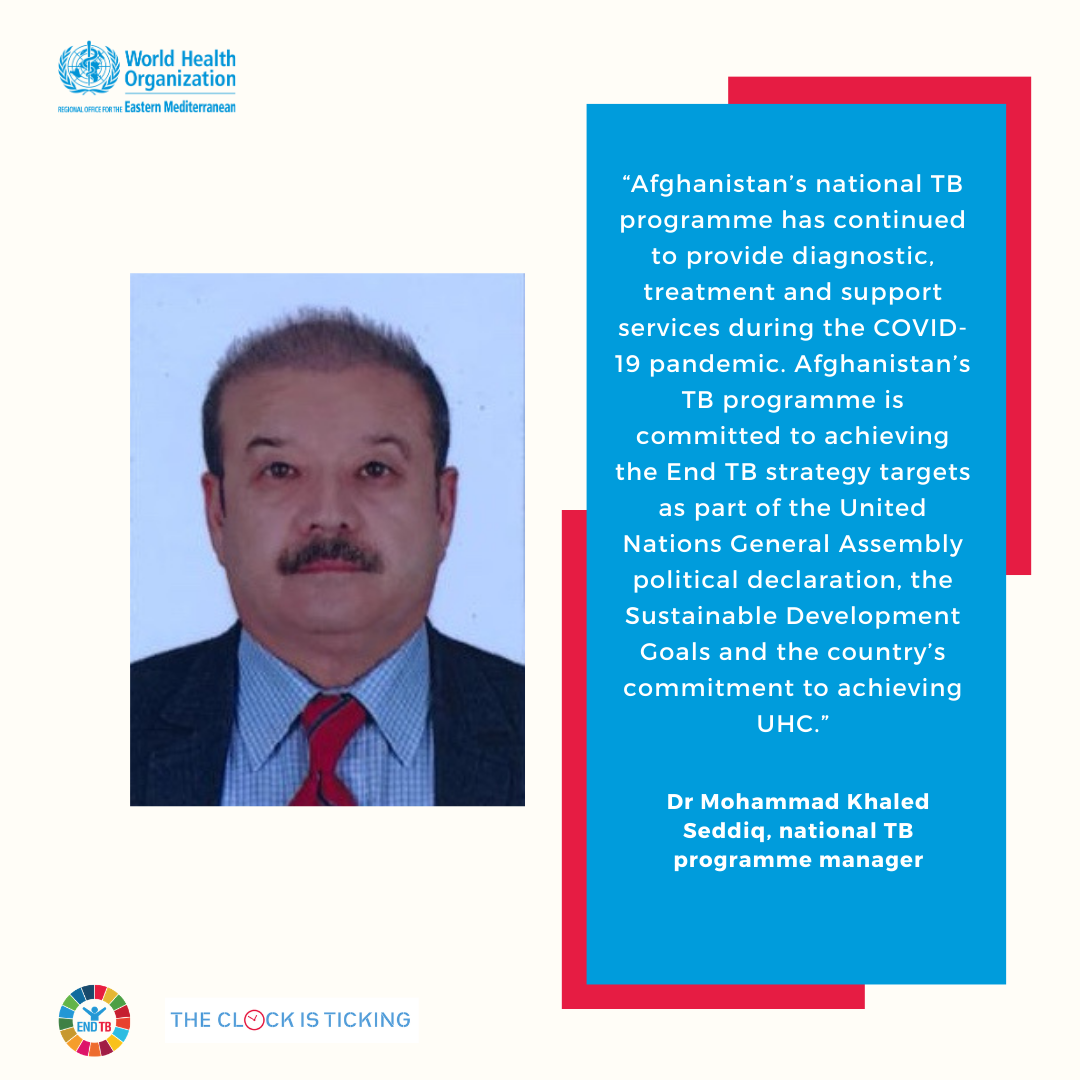Statements


Remarks of Pakistan's Minister of National Health Services Regulations and Coordination
- Thank you Dr Al-Mandhari and colleagues for the opportunity to be here today to talk about our ongoing efforts to control COVID-19 in Pakistan.
- Pakistan is a country affected not just by COVID-19. Our populations are exposed to insecurity, natural disasters, and other emergencies. We are also battling polio, and our decade long efforts to eradicate this disease have now being impacted by COVID-19, as polio staff and resources are diverted to the pandemic response..
- Pakistan has made many achievements in battling COVID-19 since the start of the pandemic, and we were able to significantly reduce transmission by July and August this year. However, like many countries around the world, easing of lockdowns resulted in a resurgence of cases in October. This required a strategic review of our response.
- Since the beginning of our first case of COVID-19 on 26 February, WHO has played a key role in helping Pakistan, whether remotely, or though in-country missions.
- In October, a team from WHO’s Regional Office for the Eastern Mediterranean visited Pakistan to review some of the lessons learned to strategize and offer technical guidance and recommendations for a stronger, more robust response to COVID-19 pandemic. There was a recognized need for rapid review on what worked well and what needs to be improved for planning a more effective response to the pandemic.
- The specific objectives that were set out for the mission included providing technical assistance in strategic planning in the short, middle and longer-term for the following four pillars of the COVID-19 response:
Reviewing progress towards Integrated Disease Surveillance and Response
Examining the situation on the Points of Entry
Initiating work on essential health services to align with the targets of PHC for UHC
Reviewing Risk Communication and Community Engagement
- I worked closely with WHO throughout the mission and to review the mission findings, focusing on specific areas for a revised approach.
- There are well functioning multiple disease surveillance systems in Pakistan. Some outstanding achievements with case-based reporting (e.g., polio, VPD, COVID-19) and solid aggregated reporting for some vertical programme using DHIS2 (Malaria, TB, HIV)
- However, it was clear during the mission that there is a need to progressively build and expand by disease, programs and geographical coverage with governance implementation and resource management, data convergence, strengthening key technical aspects and ensuring quality assurance.
- COVID has led Pakistan to rethink approach to managing Points of Entry. While there is a vision for sustainable improvement with ongoing collaboration on the plan, findings for Points of Entry identified five paramount and critical needs: sustainable human resource with capacity building; prioritize investments in new quarantine infrastructure and mapping of available facilities; establish professional training programme for PoE tailored for both health and non-health staff; restructure and modify physical PoE premises to reduce risk of transmission; data management and sharing with stakeholders.
- Taking advantage of the already well established and wide community-based networks within the polio programme allowed us to build on this for COVID-19. In a country as geographically complex as Pakistan, we depended heavily on our wealth of experience acquired on social and digital media platforms, as well as local community outreach that also included listening tools used for rumour management and two-way communication with communities.
- There are, however, limited resources and seasoned expertise dedicated to RCCE at federal and provincial levels, capacity building lacked integration and need for consolidating all monitoring and evaluation mechanisms, and this is an area we are working on to build together with WHO and partners.
- Like many countries, we are adapting our response as the situation evolves. We also know that our response to COVID-19, while taking up resources and capacities, should not allow up to forget the need to continue essential health care services, while ensuring proper infection prevention and control measures in all primary health care settings.
- Despite the challenges, Pakistan is committed to containing the outbreak, while ensuring that gains made so far in other areas are not impeded, and that we can continue to collectively work together towards on global, regional, and Pakistan-specific goals of universal health coverage.
Opening remarks of Dr Ahmed Al-Mandhari, WHO Regional Director for the Eastern Mediterranean
30 July 2020 – Thank you for the opportunity to be here today to mark the grim milestone of our approach towards one million cases of COVID-19 in Africa.
As we approach the Eid Al Adha feast, there is increased risk of transmission as a result of social and religious gatherings. We saw this happening a few months ago, just after Ramadan and Eid Al Fitr in May, which led to a spike in cases in June. As a result, we approach Eid Al Adha with concern, and call for increased vigilance by both countries and communities.
WHO recommends the cancellation of social and religious gatherings related to Eid Al Adha, but any decision should be based on a standardized risk assessment, and should be part of a comprehensive approach taken by authorities to respond to the pandemic. WHO recently released guidance to countries and communities on public health measures for Eid Al Adha in the context of COVID-19.
Six months into the pandemic, the proven public health measures that remain central to the response have not changed, and have seen countries succeed in controlling COVID-19. For countries, these include testing of suspected cases; isolation of all cases; protection of health care workers; quarantine and tracing of contacts; and proper management of points of entry. If done effectively and at the right time and scale, these interventions can break the chains of transmission and stop the disease from spreading.
For the public, lifesaving personal protective measures include hand washing, respiratory hygiene, physical distancing and wearing of masks. The actions of one individual can affect the course of the pandemic in any country, and even beyond.
Many countries have opened borders and are easing social measures because of their significant economic and social impacts. If the restrictions are not lifted in a phased approach with proper epidemiological, health care and public health assessment, there is a risk of resurgence of disease activity. As a result, we are extremely concerned about the risk of further spread of COVID-19 in Africa, if countries fail to sustain an effective public health response.
Countries that have been most successful in tackling the pandemic so far have all demonstrated strong governmental leadership, political cooperation, and close collaboration among relevant sectors. Avoiding politicization of this public health crisis allows us to focus our collective energies on what really works in controlling the disease.
Unfortunately, misinformation, misunderstanding, fear and panic continue to contribute to the spread of the disease, and undermine peoples’ ability to make informed decisions. When communicating with their populations, governments must be clear, truthful, transparent and compassionate.
We all know by now the measures that need to be taken to protect ourselves and our communities. Let us remember that every action we take as individuals in the coming weeks can determine the course of the pandemic in Africa, and beyond.
Finally, let me convey my warmest wishes to you all as we approach one of our most important Muslim holidays. While we all are burdened by the COVID-19 outbreak, the festive season presents us with an opportunity to reflect on the blessings we all have – which always are more numerous than our trials. Eid Mubarak to you all.


